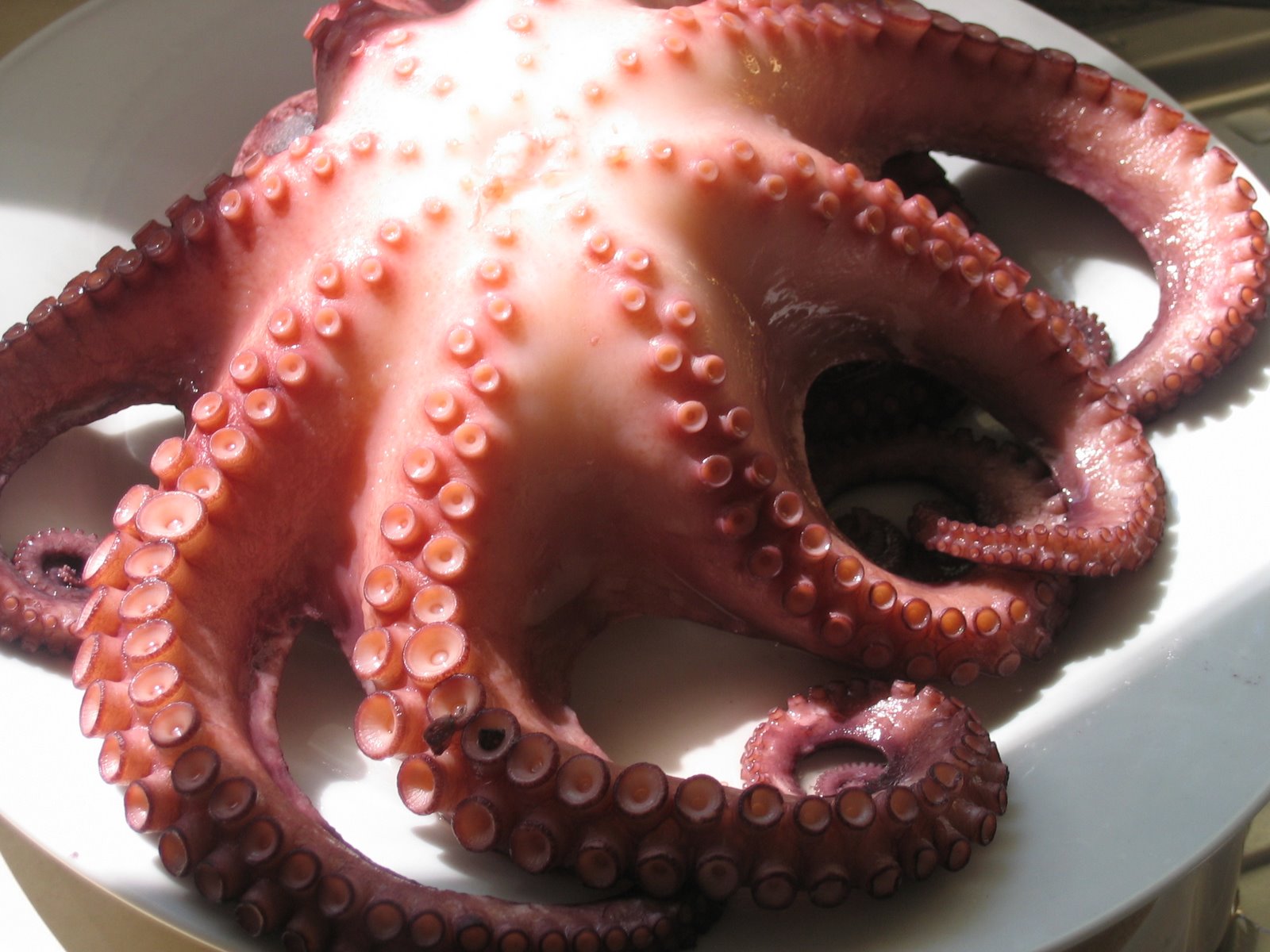https://cdn.steemitimages.com/DQmQQ1Qh5XMPmdMGgJFLMJpiQKwzudmJL3muaNNKGa3th5D/pulpo1.jpg
[source](https://blogger.googleusercontent.com/img/b/R29vZ2xl/AVvXsEgOqBWO9CC8-JJ2Z-nzXGeFoSGx83pxkgQFCmGFm0yayw672RVjeSl7cGLhZmUPcIPUkncLXqe5n29sM76K7mgiQdI0AT_l6cz70PThsbwlEgZjvma1mow8hPsYU6o5S7_dgGY1I1hSLH8/s1600/pulpo1.jpg)

The Octopus has a short, soft, oval body on the back. The opening of the mouth is in the place where its tentacles converge, and the anal opening opens under the mantle. The mantle resembles a crumpled leather bag. The mouth of the octopus is equipped with two powerful jaws, similar to the beak of a parrot. In the throat there is a grater that helps to grind food. The head carries eight long tentacles: "hands." An ordinary octopus has the ability to change color, adapting to the environment. This is due to the presence in your skin of cells with several pigments, capable under the influence of the impulses of the central nervous system to stretch or contract, depending on the perception of the senses. The usual color is brown. If the octopus is afraid, it turns white, if it is angry, it blushes. It lives in all tropical and subtropical seas and oceans (with a salinity of not less than 30%), from shallow waters to a depth of 100-150 m. He prefers rocky coastal areas, looking for caves and crevices in the rocks to live. Dolphins, sea lions, whales, seals, brunettes, eels, sharks, birds eat it. The octopus feeds on mollusks, snails, crustaceans, fish, plankton. An ordinary octopus captures the prey with the eight tentacles and bites the victim with its beak, holding it with suction cups. In this case, venom from the salivary gland of the pharynx and mouth enters the wound. Octopus meat is rich in protein and contains up to 8-10% fat. There are many extractive substances in the muscles that give the octopus a specific aftertaste. Octopus meat contains vitamin A, B1, B2, B3, B6, B9, B12, C, E, K, PP. An octopus contains macro and microelements such as calcium, magnesium, sodium, potassium, phosphorus, iron, iodine, zinc, copper, manganese and selenium. Octopuses are very useful, since 350 mg is present in 100 grams of boiled octopus. Omega-3 fatty acids. And these acids, as you know, are involved in many metabolic processes, and we must obtain them with food daily if we want to be healthy. Also, octopuses are delicious. Octopus is known for its beneficial properties and pleasant taste since ancient times. Gourmets from the ancient world cut the octopus tentacles into pieces, their heads were stuffed with spices and baked in large cakes. Their cooks were so masterful that, when preparing this dish, they used bamboo sticks instead of knives: iron knives give a thin plate a bad taste. In Spanish and Italian cookbooks you can find many recipes of all kinds to prepare octopus for the table. Fried squid are popular, that is, mass baked squid rings. The octopus is also sliced and put into soup, you can even make octopus sandwiches.

Originally posted here: https://steemit.com/naturalmedicine/@naty16/octopus-and-its-benefits


No comments:
Post a Comment